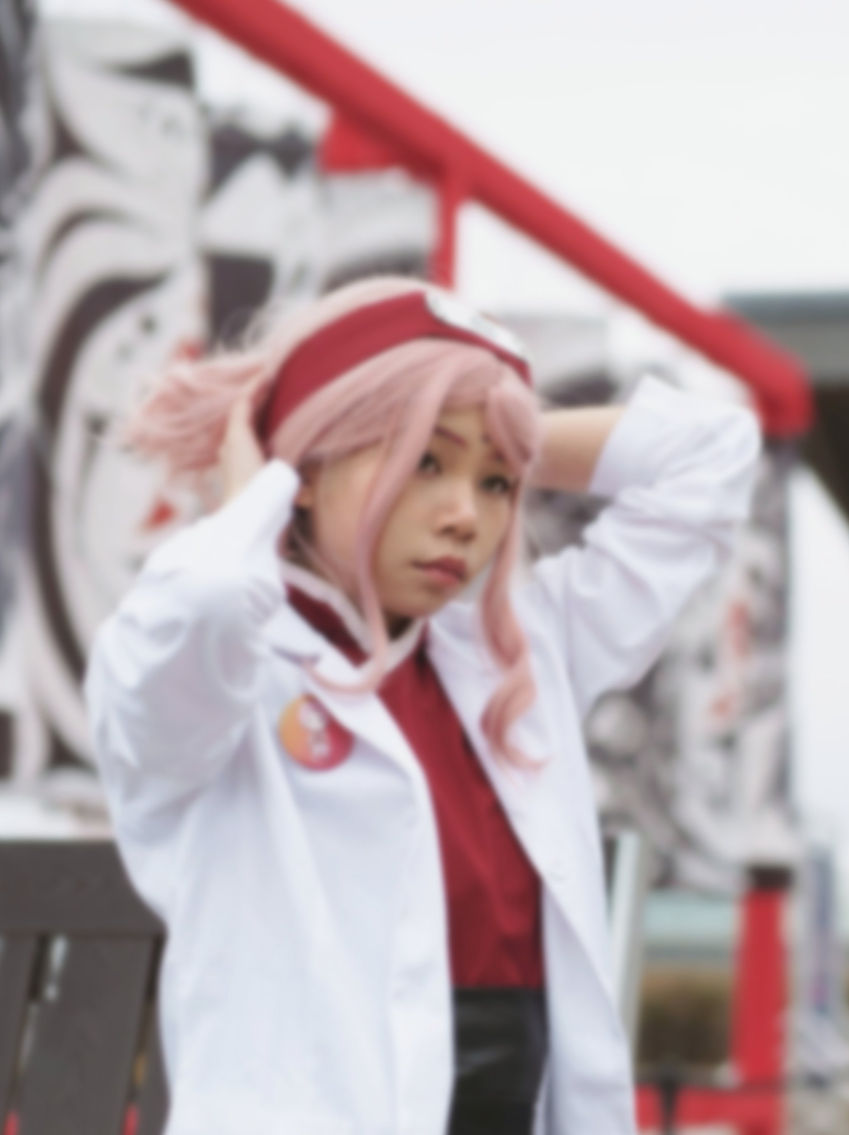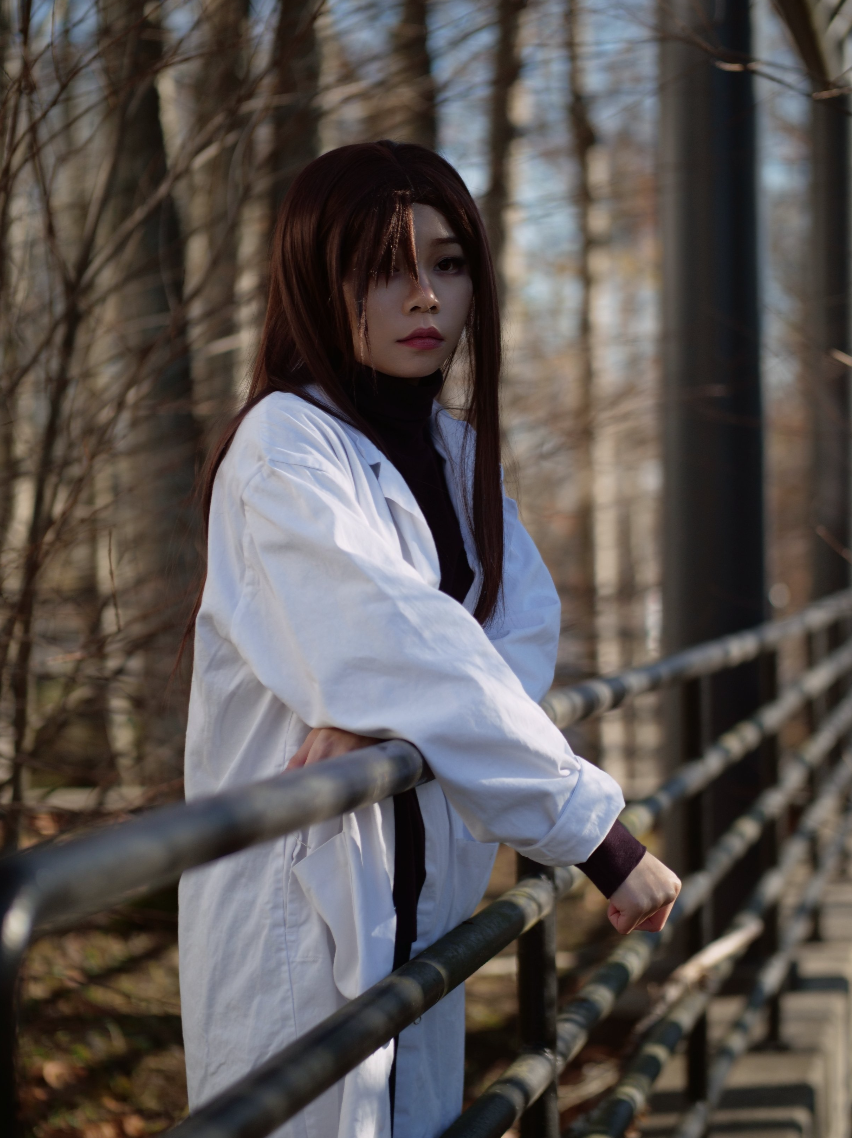
ARTS & CULTURE
Artist
Spotlight
Esther Jungnickel
Not in the mood for reading? Press play and let your ears do the reading!
Samantha Cao brings an interesting perspective as a nursing student who is also passionate about art. She highlights the feeling of imposter syndrome arising from societal judgments that prioritise conformity over originality. Her humility and openness to criticism has allowed her to develop in her practice and gain the confidence to own her identity.
MH: Hey Sam! Can you introduce yourself, your major, and what type of art you enjoy doing?
Sam: Hi, I’m Sam, and I’m in my fourth year of nursing. I haven’t done art in a long time due to life getting busy. In the past, I really enjoyed digital art, sculpting, and when I took my first painting course here, I realised I enjoyed painting. There are so many different forms of art, so it’s hard for me to define it. I’m also into cosplay, so I also really enjoy crafting, sewing, and that “genre” of performance art.
MH: Tell us more about what cosplay is. What inspired you to start?
Sam: Cosplay is basically just getting the chance to either make or just dress up as a character that you really like or have created. It’s also a great way to meet people from other fandoms. Cosplay allows me to bring a character to life by applying different skills. I do that by creating armour out of foam and making costumes out of fabric. Some people apply skills such as woodworking or metalwork. I became inspired when my brother took me to my first cosplay convention, and I just loved watching him and his friends have so much fun, like dressing up and not caring about what other people thought of them. I really loved the community and how welcoming and positive everyone is. That’s why I really got into it.
MH: That’s a beautiful form of connection. Why is art important to you?
Sam: I found art to be calming and a great way to express your emotions, especially when you’re going through something hard. There is no right way to express yourself. Art is so vast, and there are so many genres that it’s hard to have one idea of perfection.
MH: When you talk about how art is a safe space for people, have you found freedom in art for yourself?
Sam: There’s times where I wrestle with it, and it’s caused me to hide my art. I struggle with the “unwritten rules” imposed on art and artists because it makes it feel limiting, and it makes me afraid to call the things I do or create “art,” due to the judgement I may receive. For example, the expectation that art isn’t “art” unless the lineart is clean, or the figure isn’t anatomically correct.
MH: Yeah, sometimes we get caught up in the limitations others set on us and it becomes even more intimidating to share our art, something already so vulnerable and individual to us. Were there other reasons you decided not to share your art?
Sam: I didn’t think my art was good enough to put out there. I constantly compared myself to others to the point where I was convinced that someone else, who is “better” at art, should take the spotlight instead of me. Would I give someone the same advice I place on myself? No, I’d tell them to go for it. Share your art.
MH: Where do you feel that disconnect comes from?
Sam: I think the disconnect comes from feeling like I don’t really fit the criteria as to what an artist is, and that is why I don’t really put myself out there. I was hesitant to agree to this interview because I saw the previous Artist Spotlights, and admired them as artists, but wouldn’t see myself as an artist qualified for the same position.
MH: Would you have called yourself an artist at one point?
Sam: I’d call myself an artist if I frequently created art, but I haven’t had the chance to create as often because life gets busy. It’s hypocritical of me though because if an artist told me they hadn’t done art in a while, I wouldn’t discredit their identity as an artist.
MH: I’d encourage you to push into the discomfort, to sit in it and see what art comes out of that.
Sam: Yeah, you know, to help me break my mindset. I’m curious, how would you define art?
MH: Oh, how the tables have turned. It sounds like, from your point of view, your identity as an artist is dependent on your production of art. I think I would define an artist by the way they see the world. Like you said, art takes on many different forms; I consider poetry art but I also consider the way people interact with other people as art. Art at its core is about paying attention to the details, and it’s then that you can see the world and all of its beauty.
Sam: I agree, an artist definitely has a very different perspective on life versus someone else who isn’t an artist. I notice something similar in nursing. A lot of the people in my cohort experience imposter syndrome. Yes, I’m doing the practice, I’m helping people and taking care of them, but I still don’t feel like I can call myself a nurse. Our professors ask us, “Are you looking through a nursing lens, a nursing perspective?” It’s a form of reassurance and encouragement to recognize that we do have what it takes to be nurses. I definitely think my perspective of an artist has changed now that we’ve had this conversation.
MH: I’m glad. In every profession, we have to expect that we will be faced with criticism, so I was wondering, how do you take criticism?
Sam: It depends. In nursing I try to take as much criticism as I can because I’m still a student; I’m not fully experienced yet, and it ultimately boils down to someone’s life. If it’s in response to my cosplay, I usually take it positively because I always want to find ways to improve. I try not to take criticism negatively; I’ve found that most criticism comes from a good place with good intentions. It really comes down to the person and having the discretion to know when criticism is actually helpful and when it’s not. I don’t find criticism helpful when someone comes in and tries to change the essence of your project all together. That person doesn’t understand the core value of my work, so they haven’t paid enough attention for their criticism to matter to me.
MH: That’s a good perspective. So what is Disturbia to you?
Sam: To me, Disturbia is about being vulnerable and confronting something that’s been holding you back. Discomfort is definitely something that is necessary, and usually people come out stronger after. So at first glance, Disturbia seems like a negative term, but really I see it as positive, just in a tough love kind of way.
MH: Thank you for being so open and vulnerable about your journey as an artist.






